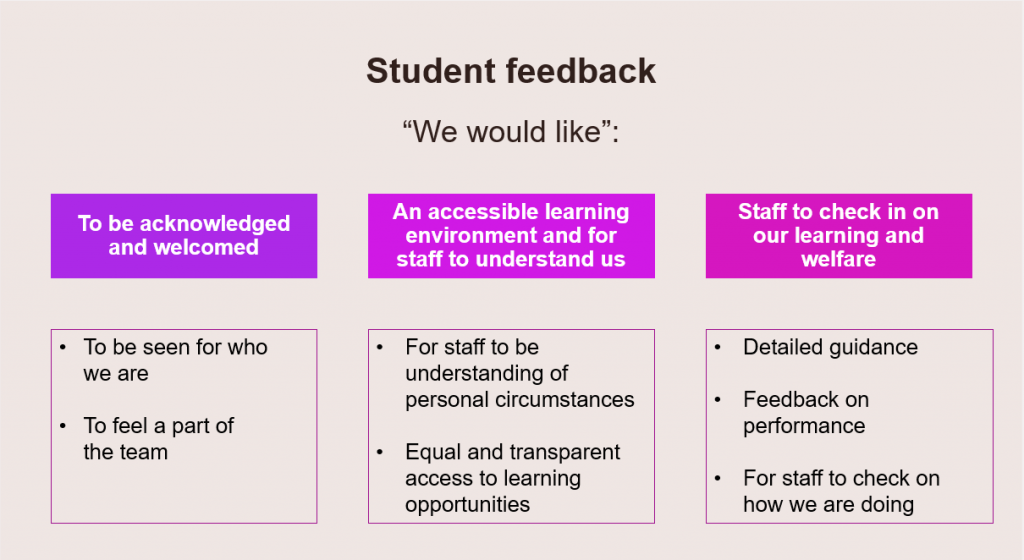The Attainment Gap Project – September 2022-July 2024
Phase 1
The Faculty of Medicine was awarded £5000 from the Social Mobility and Widening Participation Directorate’s Research and Action Fund in June 2022 to explore students’ experiences of teaching and assessment across modules. The focus was on years 1 and 2 of the BM5 programme, with a view to understanding more about the attainment gaps between black and white students, students from IMD Q1 compared to Q5 and students with mental health concerns compared to having no disability.
A workshop event was held on 22 September 2022 in which groups were formed based on these demographic characteristics. Groups were first asked to discuss potential reasons for the attainment gap among themselves and then as part of a larger group. Data from this event were analysed and findings are presented in the (attached) report
Outcomes and suggestions for further research included:
- Staff development activities regarding how demographic characteristics might impact learning, assessment, and placement learning
- Work in partnership with students with similar characteristics to co –create workshops and safe spaces to share experiences, network, uplift one another and gain access to targeted support and guidance and relatable role models.
Phase 2a
Following a second successful bid in April 2023 Phase two of the attainment gap project began.
There are two elements to this project: one which provides support and a ‘safe space’ for students to discuss issues that negatively affect their student experience on placement and on campus, and another which relates to improving staff members’ understanding of the student experience. For the former, hybrid workshops would be developed and delivered for students on topics such as communication, managing stress, and building confidence and professional identity. These workshops will also provide opportunities for networking with relatable peers, graduates and other professionals from the faculty and local Health Trusts. This workshop format has already been used successfully for students on the BM6 WP programme and have been shown to increase participants’ sense of self-efficacy and belonging (Mozley et al, 2020). Using the 2022 participatory action research outputs, the workshops will be redesigned to support students from different and intersecting backgrounds in the specific areas identified.
These workshops would also be used by the research team to inform the staff development sessions focused on increasing their understanding of student concerns. Students who attended the workshops will be offered the opportunity to work with the research team to co-create and co-facilitate an intervention for staff.
Mozley, H., D’Silva, R. and Curtis, S., 2020. Enhancing self-efficacy through life skills workshops. Widening Participation and Lifelong Learning, 22(3), pp.64-87.
Phase 2b
As a part of our research project on the awarding gap in the faculty of medicine, we are aiming to address factors that negatively impact on the awarding gap, with the aim of reducing it. One of these factors is student and staff interactions and the student experience, and based on 3 main areas of student feedback (see below), we have created a session to help staff to support students more effectively. We delivered this session at the Clinical Centres Forum in March 2024 and we will deliver a second session to the Year 1 and 2 steering group in June 2024. The session raises awareness of the challenges of the student experience, based on student feedback, and collects staff examples of best practice that address these student challenges. We will be creating a guide to support staff to support students using the feedback from these sessions.
